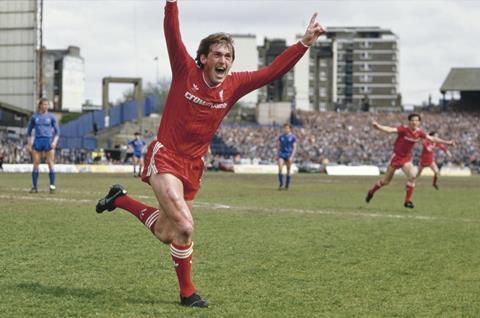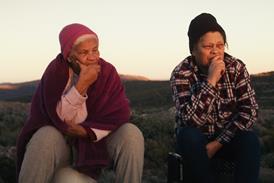The film is made up of archive footage and narrated by former Liverpool player/manager Dalglish himself

Dir: Asif Kapadia. UK. 2025. 104mins
Attend a Liverpool football match, and it’s likely you’ll hear fans chanting the name of Kenny Dalglish – even though the former player hasn’t graced the pitch for well over 30 years. Such is the enduring high esteem in which Dalglish is held, and it’s this love and respect that fuels Asif Kapadia’s typically comprehensive and involving look at the man’s sporting career and enduring legacy.
Dalglish narrates with humour and humility
As with Kapadia’s previous documentaries like Senna, the Oscar-winning Amy and Diego Maradona, Kenny Dalglish is told entirely through archive footage – although this time it is narrated directly by its subject, the now 74-year-old Dalglish. Premiering as a Rome special screening, it will certainly appeal most strongly to fans of the man and the sport – particularly as it includes some never-before-seen clips from his career and home life. Yet Oscar-winner Kapadia (himself a lifelong Dalglish fan) also puts Dalglish’s time on the pitch in the context of Liverpool’s social and political landscape, and there should be enough here to widen its reach when it debuts on Amazon Prime Video from November 4 following a one-night only UK/Ireland cinema release on October 29 via Altitude.
Opening to the strains of The Beatles’ ‘I Wanna Hold Your Hand’, it’s immediately clear that this is fundamentally a Liverpool story – even though Dalglish was born in Glasgow, Scotland, in 1951. Kapadia whizzes through Dalglish’s early life: a childhood obsessed with football, leaving school at 15, playing for Glasgow United and being signed for Celtic in 1971. Over the next six years, Dalglish proved a meticulous, talented player, helping Celtic to four Scottish league championships, four Scottish cups and one Scottish League Cup. He also found time to marry local barmaid Marina (who also provides snippets of narration throughout) and start a family.
That Marina was a Catholic and Dalglish was Protestant made their union a potentially big deal, but Dalglish downplays any drama in his typically humble, no-nonsense style. That’s present in his voice over recollections and in archive footage, as he signs to the hugely successful Liverpool in 1977 (for a then-record-breaking £440,000). While Dalglish speaks of being “terrified”, he scored the winning goal in his first game, an auspicious beginning to an impressive 14-year career with the club – including six as player/manager from 1985 – in which they won many English and European trophies.
As Dalglish narrates this remarkable trajectory with humour and humility, Kapadia brings in other voices – journalist Henry Winter, teammates Alan Hansen and Graeme Souness, and Liverpudlians including poet Jegsy Dodd, ex-Beatle Paul McCartney and writer Cathy Long – to flesh out Dalglish as a player, a leader and a man. Their testimonies make it clear that, to many in Seventies and Eighties Liverpool, which was then an economically-deprived community rife with unemployment, Liverpool was more than just a football team; they represented a real sense of hope and pride. As a star player, and later a manager, Dalglish became a figurehead of this community spirit.
That was severely tested in April 1989, when Liverpool were playing Nottingham Forest in an FA Cup semi-final match at Sheffield Wednesday’s Hillsborough ground, and unpoliced overcrowding caused a horrifying crush which resulted in 97 fatalities. This was a pivotal moment for Dalglish, who recalls it with emotion over moving, sensitively-chosen footage of both the incident and its moving aftermath. With the government, police and the media blaming violent Liverpool fans – a smear campaign that endured for 27 years – Dalglish was a powerful voice in protesting their innocence, and a solid support for all those affected. On a personal level, however, it took its toll, and he resigned in 1991, an event which ends the film. (Dalglish came back to later manage Blackburn Rovers, Newcastle United and, briefly, Liverpool between 2011 and 2012.)
Alongside its compelling subject, Kenny Dalglish features other recognisable Kapadia hallmarks. Instinctive, immersive editing from Matteo Bini moves it along apace, and a rousing score by Antonio Pinto helps mark out the dramatic highs and lows of this compelling sporting life.
Production companies: Lafcadia Productions, Calculus Media, Redrum Films
International sales: Altitude, David Bartholomew davidbartholomew@altitudefilmsales.com
Producers: Chris Clark, Asif Kapadia, Ben Mawson
Editing: Matteo Bini
Music: Antonio Pinto
























